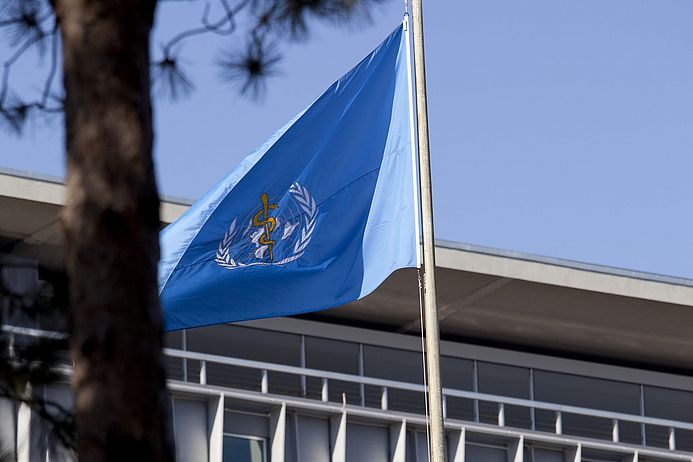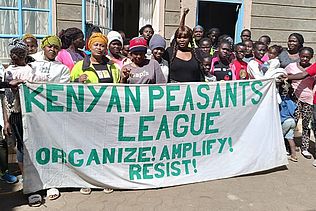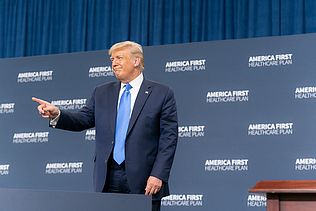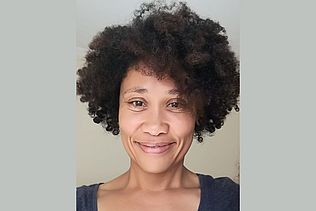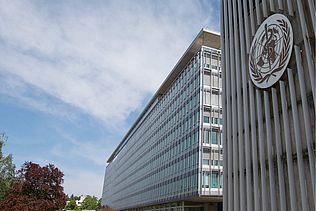By Dr. Andreas Wulf, medico international
Three years after the end of the Second World War, the United Nations were founded to end future wars and to create more equitable chances for development for all countries of the world. The World Health Organization (WHO) was created at the same time with the unambiguous mandate to be the “coordinating international body for Health” and with an astonishingly comprehensive understanding of health. Far beyond a classic bio-medical concept, the WHO understands health as a “complete physical, mental and social well being” and the achievement of the highest attainable standard of health would be a human right of all people.
This claim underlines what is the definition as well in the Universal Declaration of Human Rights of the UN: The Rights of all People are regarded equal and the political responsible actors, foremost the nation states, have the duty to realize these rights.
With this target the WHO set off 70 years ago. 30 years later, 1978, the conference of Alma Ata in Kazakhstan substantialized this target, when the member states of WHO adopted the Declaration for a Primary Health Care strategy. Accordingly, improvements of the basic living, nutrition and housing conditions are an indispensable part of a comprehensive health work. The goals of the WHO cannot be achieved alone with Vaccination, Treatment and Prevention programs for behavioral changes, but require relevant societal changes.
Furthermore, the participation and decision making of the concerned communities must be in the center of any health work. The traditional health professions should no longer monopolize Health knowledge, but Health Care Worker would become the means of knowledge transfer to communities. Resources needed to be transferred from curative medicine in few centrally located hospitals to decentralized health centers, reaching the majority of people with their most urgent and relevant health needs. The Declaration of Alma Ata set the goal “Health for All by the Year 2000”
Four decades later, it is safe to say that the necessary programs hardly have been implemented in the necessary way and for a sustained period of time. Not least, because one crucial precondition that was set in the Alma Ata Document to be able to finance these changes, was never realized: a fundamental change of global economic structure that would have enabled the developing countries to secure enough resources in an economical catch up process. Only then, they would have been able to fund their own social infrastructure and services. Because this almost never happened, the countries remained depended of the controlling charity of development aid, often in the form of credits.
This led almost immediately after the 70th decade to a massive debt crisis and continuing austerity dictates from the global funding institutions IMF and World Ban. Health experts turned Health around from a Right to effectivity calculations. Health institutions had to charge user fees to fill in funding gaps, with the effect of excluding the poorest of the poor, who most depended on the public services. Above all, the WHO was increasingly hampered in her role as the central actor of global health policy as the new millennium approached.
Only a service provider for the funder?
How could that happen? Indeed, the impressive WHO with more than 7.000 staff in 150 country offices, six regional offices in four continents, a headquarter in Geneva and six official languages, is built on sand. Her annual budget is around 2,2 Billion USD, hardly bigger than the University Hospital of Geneva. The regular member states contributions, which should secure the financial independence of WHO, are only between 15-20 % of this total budget, more than 80% is thematic and project earmarked funding. Through this mechanism, the donors of WHO can yield much more influence over the real working priorities of the organization than the other member states can do with resolutions and appeals in the annual assembly and the rotating 34 member executive board. Traditionally, the big states from the Global North are relevant: the US, GB, the EU, Canada, Japan and in addition the Scandinavian Countries, in the last years, also Germany is more and more engaged. And external donors like private foundations have increased their influence substantially. Namely, the Bill and Melinda Gates foundation has become the second important donor behind the US in earmarked funds. (Particularly for Polio Eradication)
This mismatch is not new and has been often debated. Civil society actors are criticizing the WHO for de facto becoming a “service provider” in Global health for member states and private interests. Many of them, including medico international and the People’s Health Movement formed the Geneva Global Health Hub (G2H2) in 2016. This network engages with position papers, public events and internal strategy meetings in a “lobbying from below” at the Headquarters of the WHO and argues for an independent WHO necessary to deal with the multiple health crisis in the world. G2H2 puts its finger also on the priorities of external donors to WHO programs. A huge Polio Eradication program is well funded, while other programs like the Non Communicable Disease program or the Promotion of essential Medicines are underfunded. This is not by accident. Donors like the Gates or the Rotary Club Foundations are more interested in a technical vaccination program that can show its success more easily in the figures of child lives saved, in contrast with a program that supports local production and quality assurance of generic alternatives to branded medicines. In addition, the countries of the south are happy too with the many staff positions in the WHO country offices that the Polio Eradication Programs provides.
Member states could strengthen the independence of WHO by increasing their own regular, annual contribution. However, the willingness to do this, is not only with the rich countries minimal, Particularly the BRICS States China, Brazil , Russia would have to top up their contribution substantially with a new calculation system presented by WHO and taking into account their increased economic power. During the last World Health Assembly in May 2017, the delegates agreed to a minimal compromise of 3% increase of the assessed contributions. This is purely cosmetic and does not help with the real financing constrains.
Dependent of external actors
This way, WHO remains dependent of external actors and tries to manage the conflicts of interests arising with this dependence. More rough than ready, as the critics from the Geneva Global Health Hub say. They criticize the new WHO framework FENSA to deal with non state actors. A check of interests of these actors remains insufficient. E.g., how independent the Gates Foundation can be from “big food” and “big pharma” , given that the money for the Foundation are linked to the profits of global companies of food and pharmaceutical industries? That Bill and Melinda Gates were invited twice by WHO as “special speaker” to the annual assembly and that WHO granted the Foundation now “special relations”, gives more reason for distrust.
Not less questionable are the many ways of influence through the backdoors of international politics and assumingly non-political experts. A special case is the de facto gag-agreement of WHO with the International Atomic Energy Organization (IAEO) from the year 1959. This is blocking systematically any independent expert opinion of WHO on the health dangers of radiation even in big disasters. Accordingly, little was heard from WHO with regards of Tschernobyl or Fukoshima.
But even in its own, unquestioned field of competence – the fight against global pandemics – the controversies on the independence of WHO are mounting. E.g. a big debate started during the global H1N1 Influenza (so called Swine Flue) outbreak 2009. After WHO declared this a global pandemic (later it should become clear that it was less dangerous than originally announced) enourmous ressources were invested to develop a vaccine and stock anti-retroviral medicines of questionable efficacy. The experts who advised the WHO in this case had apparently financial links to the big vaccines producers, who were looking for a big bonanza.
Likewise contentious were the debates around the availability of the new developed vaccine, which the rich countries pre-ordered en masse while the countries of the south were afraid to be left out or could not pay the high price of the vaccine.
While the WHO was criticized in the H1N1 case of unjustified alarmism, the opposite was happening 2014-15 during the Ebola outbreak in West Africa. Here she seemed much too hesitant, giving way to local and regional political influence. The governments of the concerned countries as well as the African Regional Office of WHO refrained from declaring it an immanent epidemic to avoid an economic and political isolation of the countries.
A reform of structures shall solve these problems within WHO, with the aim to bring the different levels of WHO closer together to speed up the response. Again, this case makes clear that member states of WHO are quick with critique but hesitant with their own commitment. A good example is the “Emergency Contingency Fund” to strengthen the rapid capacity of WHO to act in epidemics. Even two years after its establishment in 2015, the member states have contributed less than half of the needed 100 Mio USD.
Back to basics
Against this backdrop, it is most important that WHO sees itself not only as a technical and administrative Body, but that it finds back to its core human rights approach as rooted in the founding documents and the Alma Ata Declaration. Here, the voice of WHO is indispensable. To take this task serious, WHO must not shy away from conflicts with an economic order represented by the WTO, when patent rules are blocking access to essential, lifesaving medicines. Equally, WHO must not become a mere servant or service provider for her member states, if WHO wants to be seen as the “leading and coordinating body of Global Health”.
More than ever, naming deficits at WHO but defending its mandate at the same time – is an important task of the civil society and remains part of the work of medico international and its partners in the People’s Health Movement and in the Geneva Global Health Hub.

